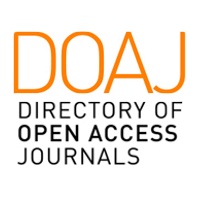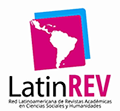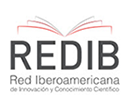Pesquisa acadêmica sobre professores em interlocução com o plano nacional de educação (PNE 2014-2024): epistemologias, confluências e contradições
DOI:
https://doi.org/10.31639/rbpfp.v8i14.132Palavras-chave:
PNE, Políticas Educacionais, Pesquisa Acadêmica, Epistemologia, ProfessoresResumo
Este artigo propõe-se a interpelar a epistemologia da produção do conhecimento sobre educação, professores, sua formação e profissionalização, tanto na academia quanto na política voltada à educação, especificamente no documento que legisla a educação brasileira nos próximos dez anos: o PNE 2014-2024. O ponto de partida são suas epistemologias e historicidades. Trata-se dos resultados de uma ampla pesquisa desenvolvida em Rede, que analisa a produção acadêmica sobre professores a partir da base teórico-metodológica da dialética. Na articulação do trabalho em Rede, esse proceder busca fazer entender aos pesquisadores do campo como sua atividade investigativa credita posições ideológicas, que sustentam fins e meios à produção do conhecimento, logo à qualidade da formação e da educação. Neste trabalho apresenta-se um recorte no que se refere às produções do Programa de Pós-graduação em Educação, Faculdade de Educação/UFG, desenvolvidas a partir da base dialética, no período de 1999-2009, em que foram defendidos 317 trabalhos. Desse total, 93 versaram sobre a temática professores. Na análise, destacam-se os indicadores de qualidade social, método, ideário pedagógico e formação, construídos pela Rede. Entende-se que a epistemologia da prática sustenta a posição hegemônica, consolidando uma concepção mercadológica para a educação; a epistemologia da práxis é contra-hegemônica e, como tal, expressa a resistência à política neoliberal, exigindo qualidade social para a educação. Ambas sustentam princípios e fundamentos que podem fazer com que o campo da produção acadêmica produza ações contra-hegemônicas ou contribua para o consenso ativo e a política de Terceira Via e o reforce. Adotou-se, também, a epistemologia como ponto de partida da análise sobre a temática - Plano Nacional de Educação -, colocando-a em relação à produção acadêmica, com foco na formação e na educação. Identificou-se que, no caso da produção acadêmica, no período 1999-2007, há a presença da racionalidade da epistemologia da prática, o que favorece a construção de conceitos que atendem às demandas neoliberais. No período seguinte, 2008-2009, há a predominante presença da epistemologia da práxis, cuja racionalidade respeita as mediações de caráter histórico, cultural e social, como processo fundante de desenvolvimento do ser social, da humanização do homem, caracterizando a produção do período como contra- hegemônica. No campo da produção do conhecimento, como no caso do PNE, expressam-se forças antagônicas que se confrontam. No caso da política expressa no PNE, a epistemologia da prática mostra-se predominante na produção das racionalidades que fortalecem a hegemonia. Conclui-se a necessidade da cautela epistemológica e alerta-se para a concepção de qualidade proposta à formação de professores e à educação no documento.
Downloads
Downloads
Publicado
Como Citar
Edição
Seção
Licença
Os direitos autorais pertencem exclusivamente aos autores. Os direitos de licenciamento utilizados pelo periódico é a licença Creative CommonsAttribution-NonCommercial 4.0 International (CC BY-NC-SA 4.0): são permitidos o compartilhamento (cópia e distribuição do material em qualquer meio ou formato) e adaptação (remix), transformação e criação de material a partir do conteúdo.































